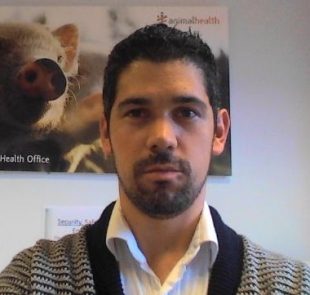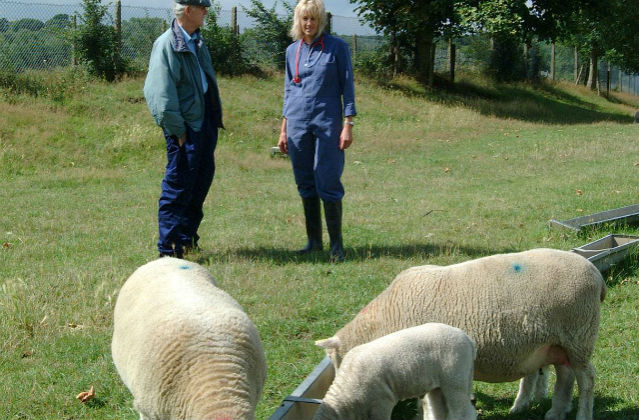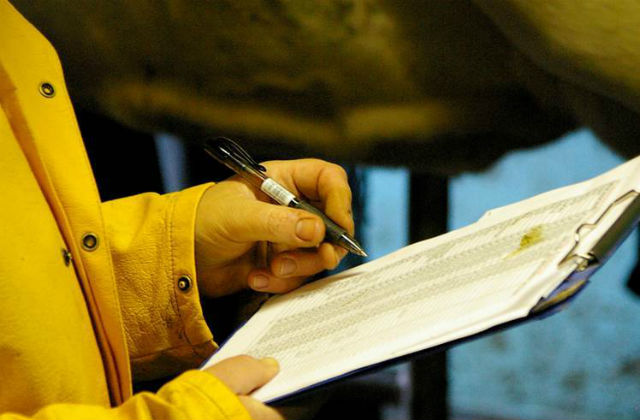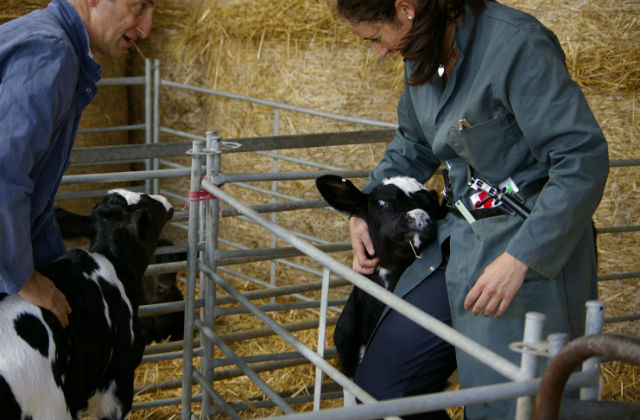
I started as an Official Veterinarian in the meat industry, which I would argue is one of the hardest jobs a vet can do. In an industrial setting, you are constantly on the spot, subject to scrutiny and with a big responsibility over your shoulders. You have to know pretty much about everything; animals with their diseases and welfare is one thing, but also about the law, hygiene, communication, industry technology and standards, communication (yes, doubly important!), surveillance systems and enforcement, to name just a few.
It's the same in the Animal & Plant Health Agency (APHA), although there is stronger support because we work with a team of other vets and have access to specialised veterinary networks at a national level.
In fact one of the most satisfying things I have found working for APHA is the wealth of experience, knowledge and willingness to offer advice in the people of this organisation, which never lets me down. No matter what job title we have, we are inspectors under the Animal Welfare Act and the Animal Health Act. That means we represent the Secretary of State and have certain powers. Most frequently these are used to restrict the movement of animals or things liable to spread disease. But also to have them removed, slaughtered or made safe in some way, such as disinfecting a contaminated tanker for example.
We work together with many delivery partners and stakeholders, but the most frequent liaison is with the local authority Trading Standards department. They are the enforcement body for many of the laws we deal with and we accompany them to provide technical guidance. One of the most fulfilling aspects of the job for me is to go on an animal welfare call out with them. But this can easily become a difficult situation. If we find animals suffering we have to take actions in their best interests, which can mean putting them to sleep.
Animal welfare
Welfare is my favourite subject and I think if someone is making money out of keeping animals, there is no excuse not to look after them in the best way possible.
The majority of farmers are very good with welfare and we carry out many routine inspections where we find spotless conditions, but we also get complaints either from the public or referrals from other organisations, such as the RSPCA. The more serious welfare cases I have dealt with were almost always related to some human drama, such as isolation, age, physical and mental disease resulting in an inability to look after the animals properly. Those cases are the most difficult because people do not respond to advice or warning very well (communication, remember?)

The fast paced nature of working with notifiable diseases
Probably the highest profile areas that we engage in are notifiable diseases, particularly foot and mouth disease and avian influenza, but also rabies and bluetongue. There are elements of public interest associated with these diseases and huge economic impact to the industry and the country as a whole, so our work is subject to a high level of scrutiny. However, like I said before, it is a team effort and I’m not going out there without training. And I will have a colleague and a senior grade on stand-by to give advice and later, help review my report.

If we get a call from a farmer or a vet and cannot rule disease out over the phone, then we have 30 minutes to be on the road with the right paraphernalia, but this is a rehearsed operation. Of course, these cases are always occur on a Friday afternoon! I could write a lot about what happens when disease is confirmed but I’ll just say it becomes very exciting and fast paced!
A huge amount of what we deal with is bovine TB (bTB). It is a big issue at many levels, including the sheer scale of the endemic and the political importance. We use a multitude of IT systems, crunching data and comparing it to the findings from the field investigations to enable implementation of the right disease control measures in breakdowns herds. This might be a little more desk based than a practice vet’s work, but you can feel like a detective sometimes, digging for evidence and putting things together to make a case.

In APHA there is no shortage of interesting things to do, if you like challenges and have an open mind. There are many work areas and any of them will take years to master: I have not even mentioned all the import and export work, animal by-products, feed audit, medicines residues, and several others.
I hope I was able to hint at the different ways that this career creates a feeling of accomplishment. I will also add that it arises from the knowledge that our work has an impact not only on our “customers” but also on the wider industry and the country’s economy and society as a whole. I can say hand on my heart that APHA staff will often bend over backwards to help our farmers where we can.
